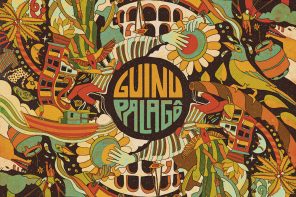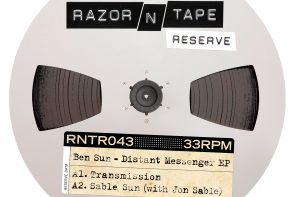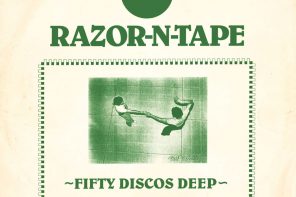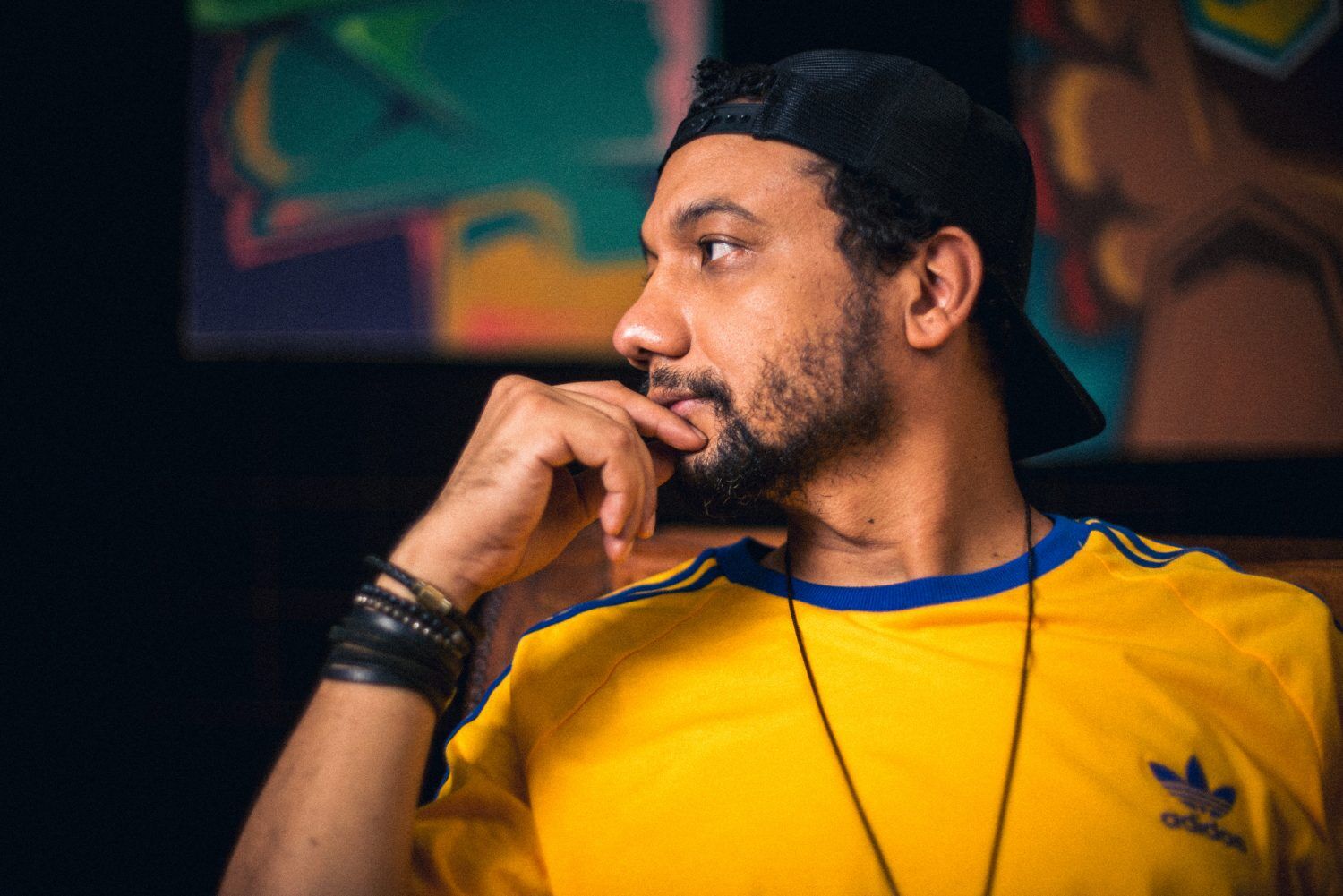
Razor-N-Tape release a curve ball on their Reserve imprint, with Pedro Guinu, a Brazilian session musician turned killer songwriter, for his full-length album, Palagô. Through 10 tracks the artist explores his relationship with the city of Rio Janeiro. Brazilian beats combine with Afro rhythms, reminiscent of the sounds of Marcus Valle and Deodato. The album is bulging with tasteful arrangements, polyrhythms, and grooves, this fusion of traditional and modern styles and influences will thoroughly thrill you. We catch up with Pedro Guinu on the week of the album launch. Put this playlist on while you read our conversation with him to get a deeper look insider his process and inspiration.
INTERVIEW
Hey Pedro thank you for taking the time to talk. Where are you today and what are you doing?
Thanks, it’s a pleasure. Right now, it’s morning here in Rio and I’m at home having a coffee with milk while listening to a jazz funk playlist.
Where are you from exactly and what was it like growing up in your town?
I’m from a small town called Vale do Mucuri in the interior of Minas Gerais state. When I was growing up there in the 80s and 90s, it was one of the poorest regions in Brazil. I had a very simple childhood but was always surrounded by culture. My uncles were professional musicians that played at night and practiced during the day in my grandmother’s house where we all lived. My mother was a teacher who always liked to read and loved the cinema as well. I believe that despite of the difficulties, I was raised around a lot of art, culture, and music.
What are you earliest musical memories?
My grandmother singing lullabies, my uncle’s drum kit set up in the bedroom and old record covers.
Were there some records that your family played that made a big impression on you? Is there an album from you parents record collection that you still love today?
My parents both worked a lot and I spent my days with my uncles. I’ll name an album that I listened to with each of them: Led Zepellin IV, Herbie Hanckock Head Hunters and Gilberto Gil’s Realce. I listened to many others that I could cite here but these are the ones that first come to mind.
When did you first realise you wanted to be a musician?
I’ve always had an aptitude for music, but I never took it too seriously as a kid. When I got a toy keyboard and started making some sounds, I never let go. I never thought much about being a musician, I just wanted to spend as much time as possible playing and singing and that’s how it is to this day.
What was it about Rio de Janeiro that beckoned you?
Really, it was because of my wife. Before living in Rio, we lived in a small town in Mississippi in the US. She’s a scientist as was completing a post-doctoral program there. When she finished, she was invited to work in Rio. When we arrived it was very confusing because neither of us had lived in the City before. We decided to live in Tijuca, an area where the rent is cheaper but also far from the beaches. I began to look for bars and jazz jam sessions to get to know the instrumental music scene in Rio. From there, my first gigs began to happen and I made some great friends.
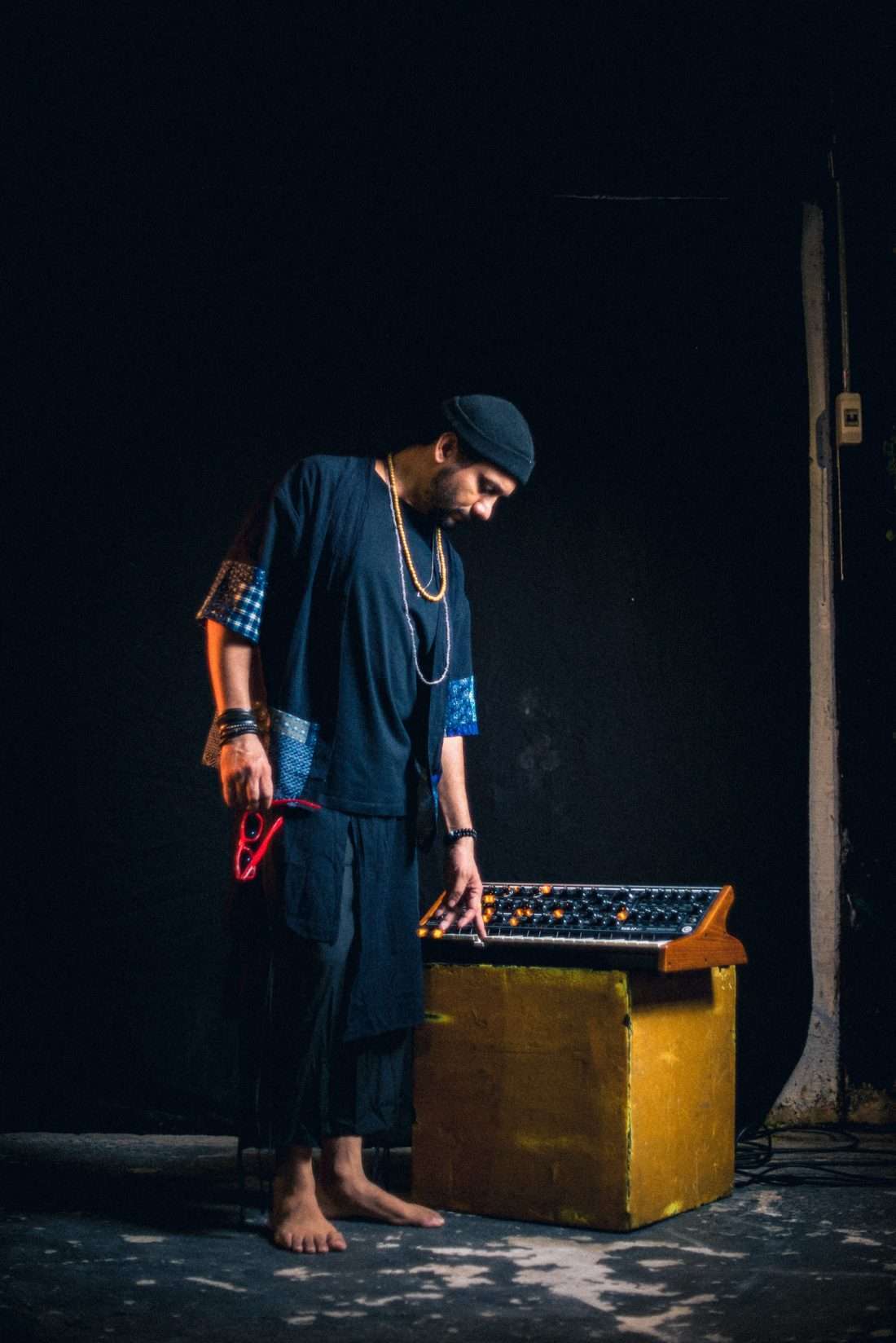
How is the musical mood and night scene in Rio right now?
Rio’s musical underground is very diverse. I notice a very interesting Afrobeat jazz scene with bands like Zé Bigode Orquestra and Foli Grio, a more Brazilian scene with acts like Bala Desejo and Luciane Dom,and a very strong R&B and Soul scene with young and producers like Theo Zagrae.
When we think Rio de Janeiro, we think carnival, Sugar Loaf, and all the colourful aspects of this exotic space. What is you description of this magical city? Why do you believe it is so special?
When I moved to Rio, I went to live in the northern part of the city, far from the postcard views that the world knows. This Downtown – North Zone axis is home to a vibrant city with a very strong, diverse and creative cultural scene. Lapa is a meeting place, the birthplace of samba and bohemia, filled with colonial architecture and concerts at Circo Voador. Downtown Rio can be dangerous too, but that’s where the city’s culture converges.
Have you ever performed at Rio carnival? Or what’s like just being ‘in’ the carnival?
Carnaval is really magical, and it also has an important political and social side where we forget about our pain and focus on love. But I never performed in Carnaval. I follow the blocos, or street celebrations whenever I can.
Astrid Gilberto, Gilberto Gil, Flora Purim were some of my first independent musical loves. Why do you think that Brazilian music, has reached so far around the globe and excited us so much in other parts of the world? What is in its DNA?
Africa is in the DNA. Brazil is a big African country outside of Africa. Our culture, cuisine, sounds, and colors are direct references from this big continent. Africa is present in everything. Shes our mother.
If you had to define the music that you are making today, what are the words that you would use?
Afro-Brazilian Music.
Who are the artists from the past that inspire the music you are making today?
My musical heroes are from the past but the majority of them are still alive and strong. Like Gilberto Gil, Djavan, João Donato, Stevie Wonder, Herbie Hancock, Marcos Valle, Milton Nascimento, Caetano Veloso and Tom Zé.
Are there some contemporary artists now who you think are doing great things? Who are they?
Yeah, definitely! I think in Brazil we’ve never prodoced as many artists and musicians as now. Russo Passapusso, Mestrinho, Luedji Luna, Michael Pipoquinha, Josyara, Caio Nunez, Zé Ibarra, Amaro Freitas, Zé Manuel, Pedro Martins, Jonath Ferr, just to name a few.
Why do you think that we look back so much to the sounds of 70s and 80s? what was so special for you in those eras?
I think that it was an era of great political change, fighting for rights and liberties. And this influenced the arts, literature and cinema forever. In the music, I believe that the popularization of new equipment like electric guitars, basses, synths, and drum machines were important aspects of the 70s and 80s.
Do you think we will ever have another 70s or a repeat of the 80s in music culture, or will music never be as inventive and seminal as it was then?
I don’t know if we’re going to have another decade like the 70s or 80s but music is a language and as such, it’s always in development, constantly evolving. I follow the evolution of Funk Carioca/Baile Funk for example and it’s amazing. In Bahia there is also a very strong scene with artists like Baianasystem, Atoxxa, etc. Music production is getting richer, more complex and creative.
You’ve worked as a session musician. Tell us about what you did and who you have worked with, what did you play.
Yes, my work as a session musician predates my work as a composer. Currently I work with the rapper, Baco Exu do Blues, who is from Bahia. He is a young artist who has been getting a lot of attention in the Brazilian rap scene. In addition to Baco, I also play with the legendary Brazilian rap and rock band, Planet Hemp, led by the masters BNegão and Marcelo D2. In these two groups I play Fender Rhodes and synths. I have a lot of creative freedom where I can imprint my art and sound on a project. I have also worked with artists such as IZA, Luedji Luna, Donatinho, Youn and Rafael Arosa among others.
When did first start writing and producing? What was your first release?
I went to college to study advertising, and it was there that I first had contact with a studio, computers and production software. I had the chance to produce some advertising jingles there. When I left, I made some money producing jingles. My first release was the single “Hold On” recorded in Nashville, Tennesse in collaboration with singer Rachel MacCann. This was when I lived briefly in Mississippi.
You made an album pretty quickly after your release debut. I guess you already had a lot of music in your music memory bank.
I think I keep too much music stuck in my head and now the music has to come out! There are already some new things coming.
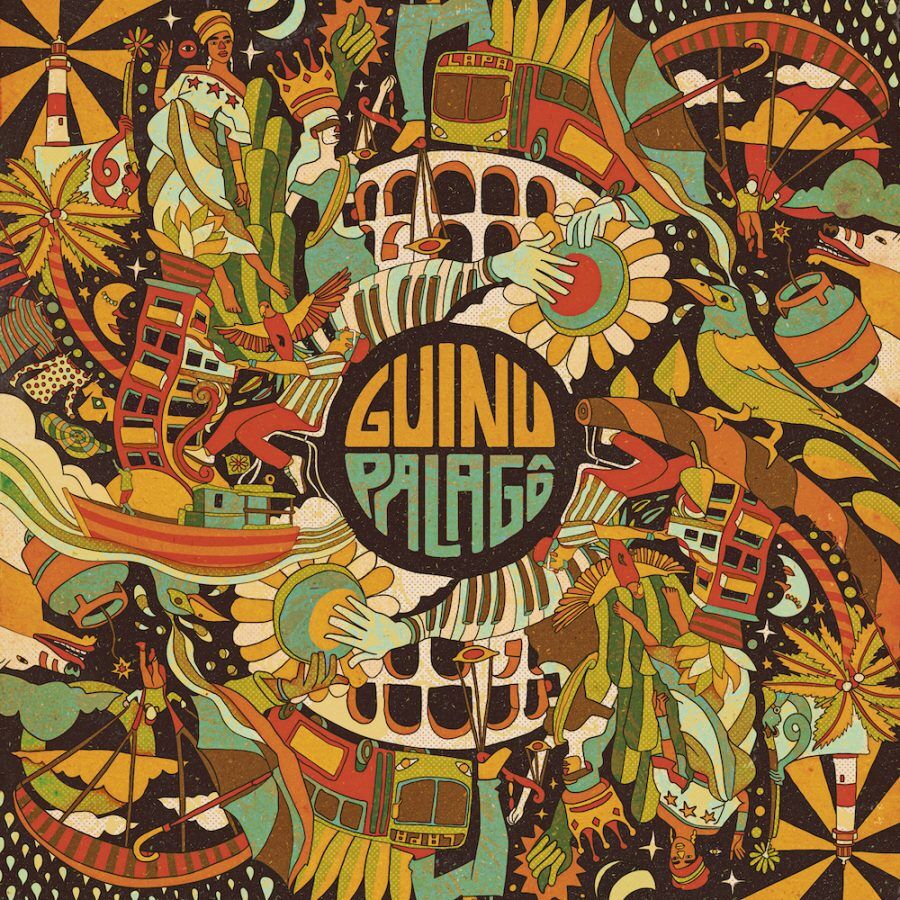
How did you hook up with Razor-N-Tape initially?
I met a great person here in Rio. He’s a DJ, Brazilian music researcher and producer named Tee Cardaci. When I showed him my work on Palagô, he told me he thought it was a future classic and that the world needed to hear it. We became good friends and he began to send my music to a few labels, one of which was Razor N Tape.
Is this a new vibe for the label working with acts like yourself as we know them for a lot of disco edits in the past.
Yes, I think so. They’re definitely not abandoning their dancefloor roots but they are exploring new sounds as well. It’s a priviledge for me to be an artist on Razor N Tape in this new faze. They’re amazing people who take music very seriously.
The album Palagô references your relationship with Rio de Janeiro. Tell us a little about this love affair and how it plays out within the tracks?
When you really open your heart to a new city and a new culture, special things can happen. I didn’t plan to move to Rio, it was all very fast and intense. So it took me a while to get used to it. But when I decided to open up, everything changed. Palagô started to be born when I decided to really embrace Rio… the city, the colors, the pains and the loves.
I have to ask you about the artwork as I sure there is an incredible artist behind this. What’s the story?
The artist responsible for the cover art is Daniel Vincent from Paraíba. He has a style that reminded me of something from the 70s so I invited him to work on this. I sent him the album, still unmixed, and he loved it and started to work. All drawings were handmade and have some relation to the lyrics of the songs on the album. I consider the cover art a fundamental part of Palagô, like track 11 of the album.
So, the remixes are set to drop in October. How much were you involved in the remixes? How do you feel about the tracks that have been delivered?
I loved every remix I’ve heard so far. I thought it was amazing how each artist interpreted the song in a different way. Especially the remix of Palagô by Seko Bass and Russo Passapusso who created a new verse for the song taking the imagery to another place. I like to leave the producer free to create whatever they feel. This is the point of art for me, construction and deconstruction.
What other projects are you working on this year? Are there plans for you to tour? Any dates you’d care to drop here?
My schedule’s pretty full for the rest of this year, touring and playing shows with the artists I perform with. But during my travels, in hotel rooms in Brazil I’m composing new things that I’m very excited about. Next year I would really like to go on an international tour with Palagô and maybe release something new. We’ll see!
Wishing you much success with this stunning album. Thank you for your time!
Muito obrigado. Um grande abraço!

